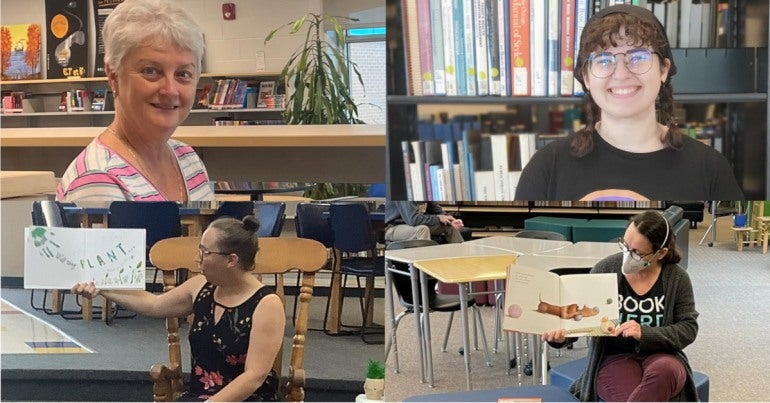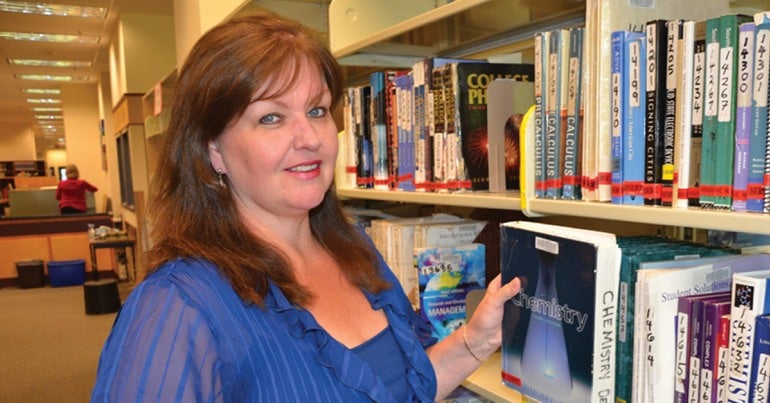 Saskatoon, Saskatchewan
Saskatoon, Saskatchewan
CUPE 1975
“Reach out to us and we’ll happily reach back to you.”
I’ve been a library assistant at the Murray Library at the University of Saskatchewan since 2000, with a break of seven years to start a family. Growing up in libraries, I have always loved reading. After earning my Humanities undergraduate degree, I really wanted to work in a library.
The best part of my job is the people. Academic libraries serve individuals with diverse and very interesting backgrounds and specialties. Interacting with them is what makes my work so fascinating.
Historically, libraries have been the heart of academic institutions. They offer more than books and journals. They provide research assistance, teaching and learning workshops, tutoring and mentorship programs, entertainment, presentations, access to technology, and wellness resources including visits with therapy dogs – something we organize during exam periods. When I started in this role, books and physical resources were predominant, but we have evolved and now offer numerous online services, as well.
The essence of my job is helping people, whether they need research material, directions, or simply a chat to brighten their day. I’ve supported people in stressful situations, guided first-year students through the campus maze and the unfamiliar library system, and helped people feel at home within the university. Making someone feel accomplished and valued is the beauty of library work.
There are a few surprising aspects of my job. I am often approached by international students to explain idioms and metaphors because I think they see library staff as non-judgemental and feel safe approaching us with these questions. I’ve also provided first aid during numerous medical emergencies until first responders arrive on the scene. Having the ability to help individuals in medical distress is important to me, so I always make sure to keep my first aid and CPR certifications up to date.
Over the years, the library has faced staffing cuts, which have had a noticeable impact on the quality of services we can offer. Library work is still very “hands-on” and requires in-depth interpersonal communication. Many patrons prefer in-person assistance that only a well-staffed library can provide.
Without staff, library usage drops considerably, and this includes access to online resources because many people need guidance in navigating them. When this occurs, staff need to be brought back, and the purpose of the library needs to be reevaluated.
Funding cuts, which seem to occur regularly, have also taken a toll on the library, particularly since the onset of the COVID-19 pandemic. Staff in many departments have found themselves overworked, leading to high levels of burnout and mental health concerns. Yet, the mental health resources available to us have remained largely the same. We need better mental health support and resources that are easier to access.
Currently, we do have resources in place for workers who may be struggling but not in crisis. However, for those experiencing a crisis, we lack the necessary resources to meet their specific needs. And unfortunately, accessing the existing resources is not as straightforward as it should be, as we have limited information on how to use them. The consequences of budget cuts resulting in staffing cuts and increased workloads have highlighted significant gaps in employee supports.
As we celebrate Canadian Library Month, it’s important for everyone to remember that we take great pride in our work and we’re always eager to assist. As library workers, we have a genuine passion for our work and we’re ready to lend a helping hand to anyone who walks through our doors. Reach out to us and we’ll happily reach back to you.



